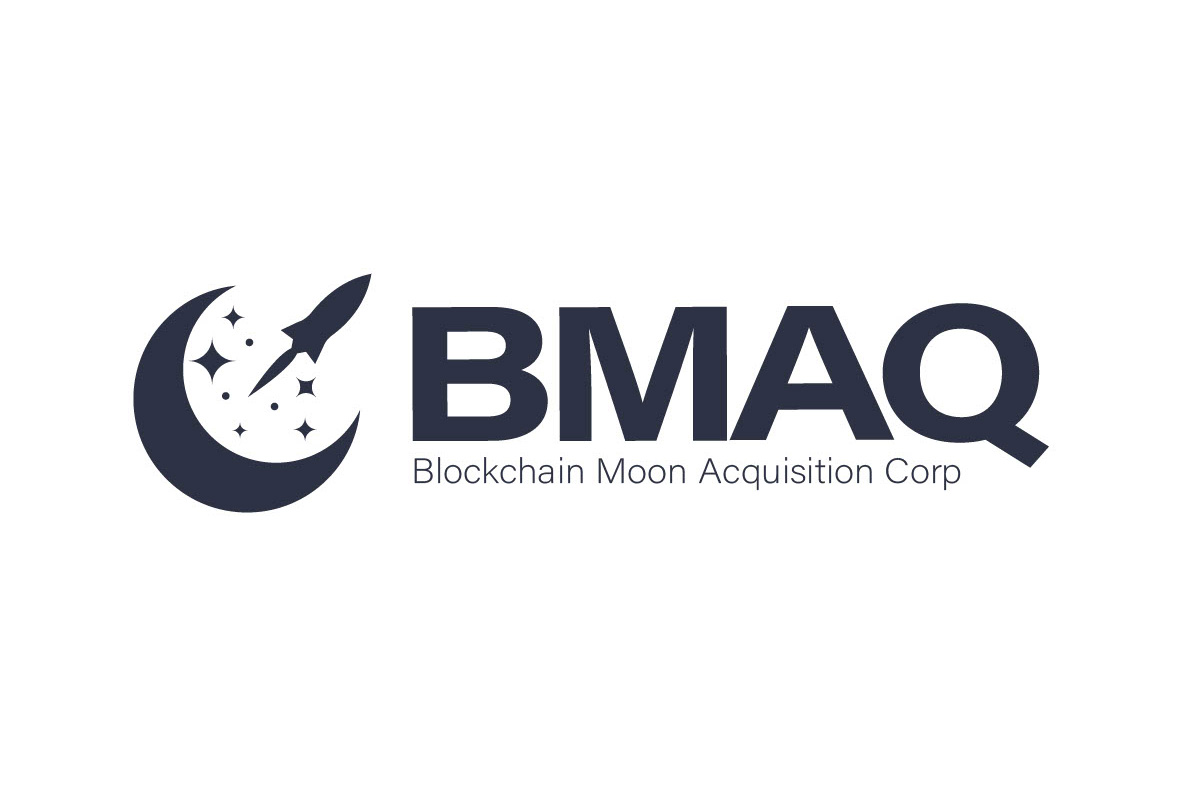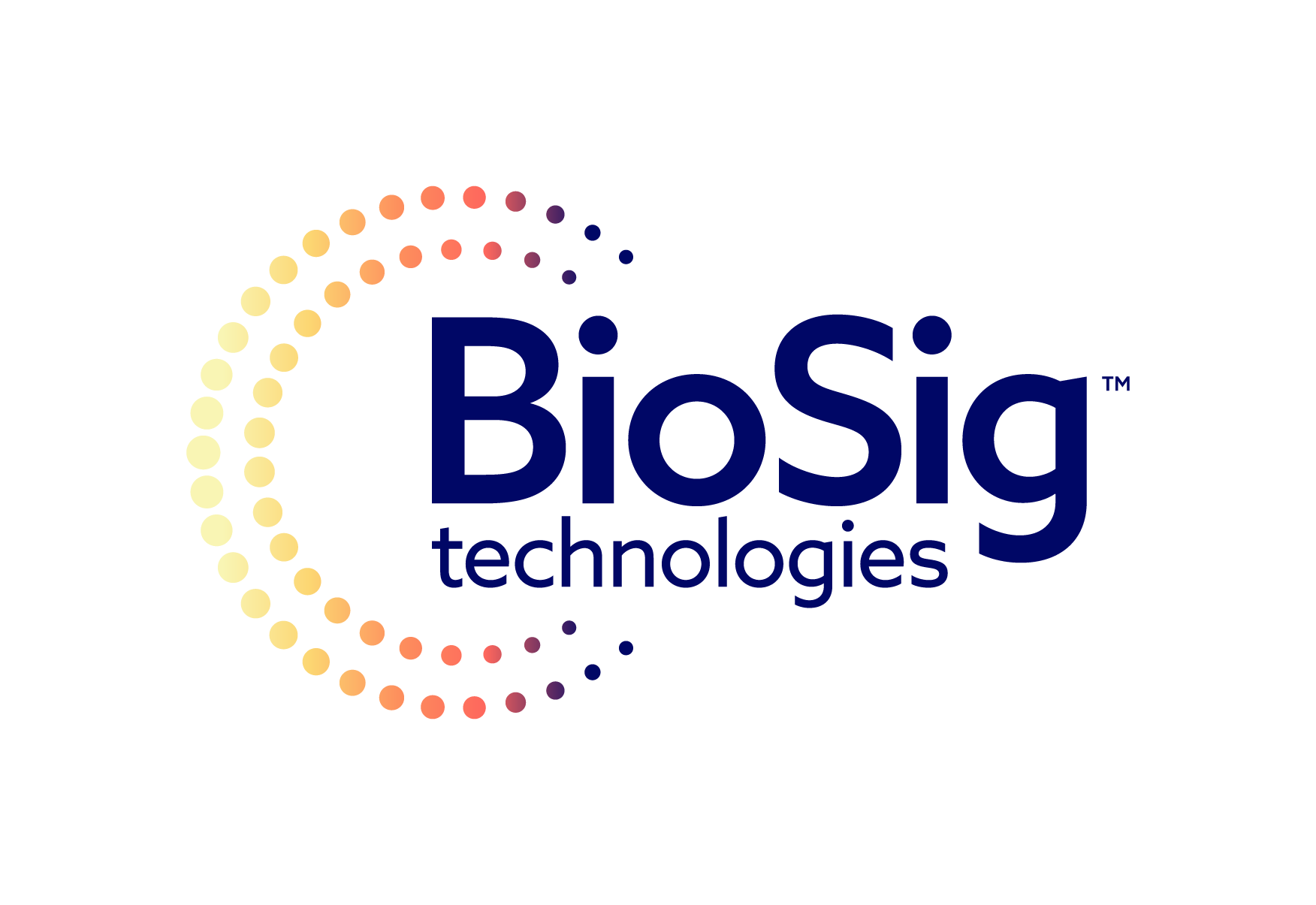Blockchain
Blockchain Moon Acquisition Corp. appoints John P. Hopkins and Carl J. Johnson as new Independent Directors

Blockchain Moon Acquisition Corp. (“BMAC”) (Nasdaq: BMAQ) announces that on September 14, 2022, John P. Hopkins and Carl J. Johnson were appointed to the board of directors as new independent board members.
“We are excited to have two extremely experienced board members added to the board as independent directors. Their backgrounds as executive directors, officers, and advisors come at a great benefit to the stockholders of Blockchain Moon Acquisition Corp.,” commented Enzo Villani, Chairman, and CEO of BMAC.
Mr. Hopkins has 40 years of experience in accounting, finance and operations, business turnarounds, acquisitions and divestitures, debt restructuring, and information technology. Most recently, Mr. Hopkins served as the President and Chief Executive Officer of Professional Security Broadband Inc., a privately held integrated security, managed services, and business intelligence systems provider to Fortune 500 corporations. As President and Chief Executive Officer, he was responsible for organically growing revenue from $18 million in 2012 to $75 million in 2021 and drove the creation of PSB Exero, an industry-disrupting private cloud-based business intelligence tool that provides a NIST level of system documentation and cyber-defenses for security. Mr. Hopkins began his career in the Big 4 public accounting firm PricewaterhouseCoopers, where he rose to the level of Audit Manager. Mr. Hopkins was subsequently employed in the roles of Senior Manager of ARCO Chemical Company, Vice President Finance of Cambrex Corporation, Chief Financial Officer of Measurement Specialties, Inc., and Chief Financial Officer of Henry Brothers Electronics (NASDAQ: HBE). Mr. Hopkins also has extensive experience in creating scalable enterprise automation platforms, as well as in leading business and accounting process reengineering and turnarounds. Along with his executive career, Mr. Hopkins served on the board of directors of Professional Security Broadband Inc. from 2011 to 2021 and on the Felician University School of Business Advisory Board from 2019 to 2021. He is also a member of the American Institute of Certified Public Accountants. In addition, Mr. Hopkins currently teaches at New York University Leonard N. School of Business, Seton Hall University Stillman School of Business, Seton Hall University School of Law, and previously at Felician University School of Business. Mr. Hopkins holds an MBA from Villanova University and a Bachelor’s Degree in accounting from West Chester University.
Mr. Johnson has over 40 years of marketing and sales experience in consumer healthcare. In 2019, Mr. Johnson founded Four Peaks Insight, LLC, a business development and executive coaching business. He is also currently serving as a member of ExecHQ, an executive advisory firm. Previously, Mr. Johnson served as President and Chief Executive Officer and as a member of the Board of Directors of Entia Biosciences, Inc., a clinical-stage biotechnology company engaged in the development of pharmaceutical-grade organic compounds, from August 2015 to November 2017. Mr. Johnson served as President and Chief Executive Officer and as a member of the Board of Directors of Matrixx Initiatives, Inc., a marketer of over-the-counter (“OTC”) healthcare products, from July 2001 until October 2008, and again as a member of the Board of Directors of Matrixx Initiatives from February 2011 to February 2014. From 1993 to 2001, Mr. Johnson was Vice President, Commercial Development with Perrigo Company, a leading manufacturer of OTC pharmaceutical and nutritional products for the store brand market. Prior to that, Mr. Johnson held a number of high-level marketing and sales positions at Johnson & Johnson from 1973 to 1989, including the position of V.P. Marketing & Sales for Vistakon, a Johnson & Johnson Company. He also held the position of Director of Marketing for Johnson & Johnson Baby Products Company. Prior to joining Johnson & Johnson, Mr. Johnson was an account executive at Compton Advertising, servicing Procter & Gamble. Mr. Johnson was a member of the Board of Directors of Scolr Pharma, Inc. from 2010 to 2013, including as Chairman from 2011 to 2013. Mr. Johnson also previously served on the boards of the Generic Pharmaceutical Association and the Consumer Healthcare Products Association. Mr. Johnson holds a Master’s of Business Administration — Marketing from Fairleigh Dickinson University and a Bachelor’s of Science in Economics from Wagner College.
The board of directors of BMAC has affirmatively determined that Mr. Hopkins and Mr. Johnson each meet the applicable standards for independence under the rules of The Nasdaq Stock Market LLC.
In connection with their appointment to the board of directors, Mr. Hopkins and Mr. Johnson are each expected to enter into BMAC’s standard form of indemnity agreement for directors and officers and joinder agreements to be bound by the same provisions of that certain Insider Letter Agreement, dated October 18, 2021, by and between BMAC and each of BMAC ’s officers, directors, and initial stockholders.
Blockchain
BioSig Technologies, Inc. Signs Definitive Share Exchange Agreement with Streamex Exchange Corp. to Launch First-Mover Real-World Asset (RWA) Tokenization Company Bringing Commodity Markets On-Chain.
Blockchain
From Onboarding to Settlement in Minutes: TransFi Launches BizPay to Redefine Global Business Payments

TransFi
Blockchain
Blocks & Headlines: Today in Blockchain – May 22, 2025

The blockchain universe never sleeps. From pioneering cross-border payment systems in Central America to city-wide crypto strategies in New York City, today’s headlines reveal an industry maturing at breakneck speed. In this edition of Blocks & Headlines, we explore five landmark developments:
-
Guatemala’s Banco Industrial integrates blockchain for seamless cross-border remittances.
-
NYC Mayor’s Office unveils a comprehensive crypto and blockchain roadmap.
-
OSR Holdings, BCM Europe & Taekwondo Cooperative sign an MOU to launch the OSRH token.
-
Bybit’s “Chicken Trader” livestream—crypto meets poultry in the world’s first poultry-powered trading showdown.
-
FIFA taps Avalanche to build a dedicated blockchain for its NFT platform.
These stories underscore three key trends reshaping the ecosystem:
-
Institutional Adoption & Regulation: From national banks to municipal governments, legacy institutions are embracing decentralized technologies.
-
Tokenization & Community Engagement: Strategic partnerships are launching specialized tokens that bridge niche communities with global markets.
-
Innovative Use Cases: Whether gaming, entertainment, or live-stream events, blockchain’s versatility spawns ever-more creative applications.
Join us as we unpack the implications, weigh the opportunities, and forecast where these trajectories might lead.
1. Guatemala’s Largest Bank Integrates Blockchain for Cross-Border Payments
What Happened
Guatemala’s Banco Industrial, the country’s biggest financial institution, announced the deployment of a private‐permissioned blockchain network to streamline remittances from the U.S. into Guatemala City and beyond. The solution reduces settlement times from days to minutes, cuts fees by up to 60 %, and offers real-time traceability for senders and receivers.
Source: Cointelegraph
Analysis & Commentary
-
Financial Inclusion Boost: Remittances account for over 12 % of Guatemala’s GDP. By minimizing friction and cost, blockchain integration will extend financial services to remote communities reliant on diaspora funds.
-
Risk & Compliance: Permissioned networks allow Banco Industrial to retain AML/KYC controls, mitigating concerns around illicit flows. This hybrid approach demonstrates that enterprise blockchain can balance decentralization with regulatory rigor.
-
Regional Ripple Effects: Neighboring Central American banks are watching closely. Should Guatemala’s pilot succeed, we can expect a domino effect across El Salvador, Honduras, and Costa Rica—each seeking to capitalize on faster, cheaper cross-border rails.
Implications
Legacy banks worldwide should view this as a blueprint: private blockchains can coexist with existing compliance frameworks while delivering transformative user benefits. Early movers will capture remittance market share and cultivate fintech partnerships across the Latin American corridor.
2. NYC Mayor Unveils Ambitious Crypto & Blockchain Agenda
What Happened
New York City Mayor Eric Adams detailed his administration’s multi-pronged strategy to make NYC a global crypto hub. Key initiatives include:
-
A regulatory sandbox for crypto startups to pilot DeFi, NFTs, and token-based fundraising under city supervision.
-
Partnerships with CUNY and Columbia University for blockchain research and talent development.
-
Deployment of a blockchain-based public record system for land titles and business registrations.
Source: GovTech
Analysis & Commentary
-
Regulatory Harmony vs. Overreach: By offering a controlled sandbox rather than blanket deregulation, NYC signals a nuanced stance—encouraging innovation without sacrificing consumer protection.
-
Talent Pipeline: Academic partnerships aim to remedy the talent shortage plaguing blockchain firms. Local graduates trained in distributed ledger technologies (DLT) will feed startups, financial institutions, and government agencies.
-
Public Services on Chain: Land registries and business filings on blockchain promise greater transparency and fraud reduction. If scaled effectively, NYC could set a global standard for government-blockchain integration.
Implications
Other major cities—London, Singapore, Dubai—will feel pressure to match NYC’s playbook. Municipal leaders should prioritize sandbox frameworks and academia-industry liaisons to nurture homegrown crypto ecosystems.
3. OSR Holdings, BCM Europe & Taekwondo Cooperative Launch OSRH Token
What Happened
OSR Holdings, BCM Europe, and the Taekwondo Cooperative signed a strategic Memorandum of Understanding to co-develop the OSRH token, a blockchain-based digital asset aimed at supporting global Taekwondo practitioners. Features include:
-
Membership Rewards: Tokens earned through event participation, coaching certifications, and tournament wins.
-
Decentralized Governance: Athletes vote on sponsorship allocations and rule-change proposals via on-chain ballots.
-
Marketplace Integration: A dedicated NFT marketplace for Taekwondo memorabilia, from digital belts to highlight reels.
Source: PR Newswire
Analysis & Commentary
-
Niche Tokenization: OSRH token exemplifies the power of community-focused tokens. By aligning incentives with passion points—training, competition, governance—stakeholders gain ownership and engagement.
-
Governance Innovation: Athlete-driven decision-making on sponsorship and funding disrupts top-down federation models. This could democratize sports governance across disciplines.
-
Commercial Ecosystem: The NFT marketplace offers monetization channels for athletes and federations alike. Strategic royalties on secondary sales ensure sustainable funding.
Implications
Other sports federations and niche communities should explore token models that blend rewards, governance, and commerce. Successful launches will hinge on clear utility, user education, and regulatory compliance in key jurisdictions.
4. Bybit Presents “Chicken Trader”: The World’s First Poultry-Powered Trading Showdown
What Happened
Cryptocurrency exchange Bybit debuted “Chicken Trader,” a live-streamed event where two contestants trade crypto pairs—and manage live chickens—to earn “Egg Points.” Viewers can stake on their favorite trader, earning NFTs and token rewards based on performance.
Source: PR Newswire
Analysis & Commentary
-
Gamification Meets DeFi: Chicken Trader’s fusion of live-stream engagement, staking mechanics, and NFTs exemplifies Web3’s playful ethos—turning trading into interactive entertainment.
-
User Acquisition Strategy: Bybit gamified acquisition funnels, leveraging viral social content to onboard nontraditional crypto audiences intrigued by the novelty factor.
-
Regulatory Tightrope: Combining staking with competition and livestock raises jurisdictional questions around gambling, securities, and animal welfare. Bybit must navigate diverse regulations to scale globally.
Implications
Other exchanges will replicate gamified formats to differentiate UX and grow communities. Yet long-term viability demands balancing flashy live-events with rigorous compliance, sustainable tokenomics, and authentic value for participants.
5. FIFA Taps Avalanche to Power Its NFT Platform
What Happened
Global soccer body FIFA selected the Avalanche blockchain to launch its official NFT marketplace, featuring digital collectibles—from World Cup highlights to player-card packs. Avalanche’s high throughput and low fees were cited as decisive factors.
Source: TradingView (via Cointelegraph)
Analysis & Commentary
-
Scalability & Sustainability: Avalanche’s consensus mechanism delivers sub-second finality and carbon-offset commitments, aligning with FIFA’s environmental pledges.
-
Fan Engagement: Tokenized highlights and limited-edition digital memorabilia expand revenue streams beyond broadcast rights, offering fans verifiable ownership and collectible provenance.
-
Interoperability: Avalanche’s growing DeFi ecosystem enables future integrations—staking fan tokens, launching prediction-market games, or embedding NFT rewards in FIFA’s mobile apps.
Implications
Major sports leagues and entertainment brands eyeing NFT forays will scrutinize Avalanche’s performance under FIFA’s global load. Blockchain platforms must prove they can handle spikes during marquee events—kickoff times, finals, transfer windows—while preserving UX and sustainability goals.
Conclusion
Today’s Blocks & Headlines illustrate blockchain’s multifaceted evolution:
-
Legacy institutions like banks and city governments are unlocking new efficiencies and transparency through private and public DLT networks.
-
Community-driven tokens are redefining governance and monetization in sports and niche domains.
-
Innovative engagement—from poultry-fueled trading spectacles to global soccer NFTs—demonstrates blockchain’s capacity for gamification, fan loyalty, and novel revenue models.
Yet with opportunity comes responsibility: scalable architectures must coexist with robust compliance; token economies require thoughtful design to sustain value; and regulators, academia, and industry must collaborate to craft frameworks that balance innovation with consumer protection.
As blockchain weaves deeper into finance, governance, entertainment, and sports, stakeholders who embrace strategic partnerships, prioritize user education, and invest in resilient infrastructures will lead the charge into Web3’s next frontier.
The post Blocks & Headlines: Today in Blockchain – May 22, 2025 appeared first on News, Events, Advertising Options.
-

 Blockchain Press Releases5 days ago
Blockchain Press Releases5 days agoCoinW Unveils Industry-First Futures Protection Program:Instant Refunds Designed to Safeguard Traders
-

 Blockchain Press Releases2 days ago
Blockchain Press Releases2 days agoCM Global Services (CMGS) Secures Exclusive Multi-Year Logistics & Procurement Partnerships with Compass Mining and NovoMod
-

 Blockchain4 days ago
Blockchain4 days agoBlocks & Headlines: Today in Blockchain – May 19, 2025 | DoubleZero, Toobit, Story Protocol, Marco Polo, Argo Blockchain
-

 Blockchain Press Releases3 days ago
Blockchain Press Releases3 days agoOnRe, Backed by Ethena, Solana Ventures, and RockawayX Launches Structured Yield Product Combining Real-World Stability and On-Chain Upside
-

 Blockchain Press Releases4 days ago
Blockchain Press Releases4 days agoHTX Unveils Finalists for $6M Mars Program Special Edition, Space Journey Selection Enters Final Phase
-

 Blockchain3 days ago
Blockchain3 days agoVanEck Prepares to Launch PurposeBuilt Fund to Invest in Real-World Applications on Avalanche
-

 Blockchain Press Releases4 days ago
Blockchain Press Releases4 days agoHTX Launches Multi-Assets Collateral Mode for USDT-Margined Futures, Empowering Traders With Enhanced Capital Efficiency
-

 Blockchain Press Releases3 days ago
Blockchain Press Releases3 days agoHTX Executives Go Face-to-Face: Justin Sun & Molly Dive Into Market Strategy, Space Visions, and More Opportunities




























